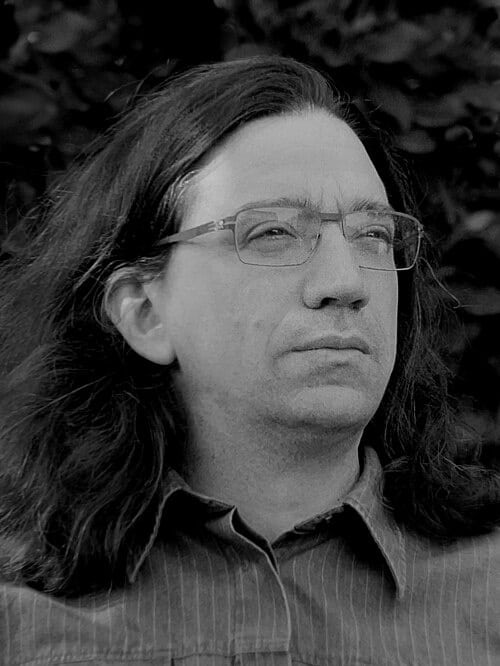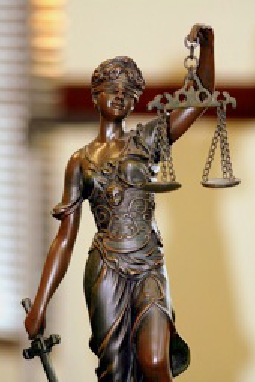Introduction To Yarvin’s Formalism
The introduction to this series should be read first. It has the index to all posts in this series.
The previous post discussed two aspects of Yarvin’s first blog post, his rejection of current ideologies and his loathing of democracy. This post describes the ideology he created, formalism.
The goal of formalism
Yarvin starts with the proposition that the only truly significant problem facing humans is violence. The goal of formalism is to rid the planet of violence. Only then can we focus on other problems.
Next to organized human-on-human violence, a good formalist believes, all other problems—Poverty, Global Warming, Moral Decay, etc., etc., etc.—are basically insignificant. Perhaps once we get rid of violence we can worry a little about Moral Decay ….
He means exactly this: until violence is ended, we must focus on one thing, getting rid of it. It’s an engineering problem, not a moral problem. He sets up pacifism as an alternative, and of course pacifism doesn’t solve violence.
He also dismisses the idea of social justice as a solution. He describes social justice as the idea that we should all have an equal share of the limited resources available to us. He says we don’t know how to equalize things, it won’t last, and it isn’t practical. We’d have to start by setting up rules about equality in things, and then take from some to give to others.
Solving violence with rules
Violence is the result of conflict and uncertainty. People are in constant conflict about stuff, but if everyone knows the result of the conflict in advance, there’s no reason to engage in violence. He seems to think that’s true of state-level conflict too: if we knew how a war would turn out, why wouldn’t the losing side surrender, he says. So, the first step is creating rules of ownership.
Formalism says: let’s figure out exactly who has what, now, and give them a fancy little certificate. Let’s not get into who should have what.
The starting place is where we are now. We make a list of everything that can be owned, and whoever has it gets to keep it. Then we can define violence:
Violence, then, is anything that breaks the rule, or replaces it with a different rule. If the rule is clear and everyone follows it, there is no violence.
The United States is a corporation
Formalism says that the US government controls what happens inside the boundaries of the US. It has the power to collect taxes and make rules of behavior, and these powers are property, just like any other property right. The government isn’t going to voluntarily surrender them.
Yarvin tells us that the US government is a corporation, meaning “… it is a formal structure by which a group of individuals agree to act collectively to achieve some result.” In this setting citizens are serfs, actually corporate serfs. I think he sees private corporations as no different from the US government. He explains that the purpose of his exemplar, Microsoft, is to make money for shareholders by selling software.
But he doesn’t see the purpose of the US government. He thinks the government isn’t able to control much.
In fact, if anyone can identify one significant event that has occurred in North America because Bush and not Kerry was elected in 2004, I’d be delighted to hear of it. Because my impression is that basically the President has about as much effect on the actions of the US as the Heavenly Sovereign Emperor, the Divine Mikado, has on the actions of Japan. Which is pretty much none.
In his view, the US government is a poorly functioning corporation with no discernible control mechanism, loaded with assets and flailing around trying to do something for opaque reasons.
Yarvin’s solution
To a formalist, the way to fix the US is to dispense with the ancient mystical horseradish, the corporate prayers and war chants, figure out who owns this monstrosity, and let them decide what in the heck they are going to do with it. I don’t think it’s too crazy to say that all options—including restructuring and liquidation—should be on the table.
Snip
To reformalize, therefore, we need to figure out who has actual power in the US, and assign shares in such a way as to reproduce this distribution as closely as possible. Links omitted.
He suggests that the current power structures be evaluated and shares in the reformalized US be distributed on the basis of the power of each recipient. Corporations have power, and would be shareholders. He cites the New York Times as an example. Perhaps some citizens have power, and might get shares, but that’s not clear. In any event, having divided up the power, we let the people with power decide what to do with the assets they control. The rest of us just stay out of the way.
The new power structures may not see the use for nation-states. He suggests that cities, but not states, perhaps should be “spun off”; pointing to Dubai, Singapore, and Hong Kong as positive examples. He points out that there isn’t any political violence in those city-states because there isn’t any politics.
That seems to be Yarvin’s main point. He thinks politics always leads to violence of some kind, whether it’s the violence of taxation or of limits on personal freedom, or physical violence. Somehow that problem is solved by getting rid of politics and replacing it with system of control by those who hold power now.
Discussion
1. I rearranged the order of the arguments hoping to clarify.
2. One obvious thing about this is the reductionism. Violence is a problem, sure, but we can’t wait for that to be solved before dealing with other problems. Those lesser problems, poverty, climate breakdown, moral decay, are at the root of a lot of the violence.
Another is the casual acquaintance with reality. This post was written ten years after Hong Kong was returned to China, and the latter was encroaching on democracy there. Anyone who has seen Crazy Rich Asians will see the outcome of the structure Yarvin imagines: great for the rich sons and daughters of the rich in Singapor.
3. The purpose of the United States government is set out in the Preamble to the Constitution. Yarvin doesn’t address it.
4. Yarvin takes the side of Walter Lippman in his debate with John Dewey over democracy, and goes even farther. Here’s a short paper describing the debate. Very roughly, Lippman thinks that our civilization is too complex for the ordinary citizen, so we should select experts to handle the complexities and advise the government rather than depend on the wisdom of the masses.
Dewey thinks that citizens should be educated in critical thinking, so they could participate in the discussions on issues that affect them. The people most affected by an issue would constitute a “public” in his parlance. This post gives an introduction to his thinking.
But Dewey had a larger reason for supporting democracy. From the Stanford Encyclopedia of Philosophy:
Dewey views democracy as an ideal of associated life in the sense that as an ideal he thinks that it reconciles the full expression of individual potentialities and the common good. In this sense, democracy sits at the apex of his historicised naturalist account of individuality and community. “From the standpoint of the individual”, as he puts it, democracy “consists in having a responsible share according to capacity in forming and directing the activities of the groups in which one belongs and in participating according to need in the values which the groups sustain”, while “from the standpoint of the groups, it demands liberation of the potentialities of members of a group in harmony with the interests and goods which are common”…. Cites omitted.
Yarvin doesn’t address this debate. He thinks the problems with democrcy, most of which were laid out by Lippman and Dewey, are so great that the solution is to burn it to the ground. So far he hasn’t identified a view of the individual that would enable him to address Dewey’s view of democracy. instead, he consistently ignores individual citiaens as if we were irrelevant to this discussion.



